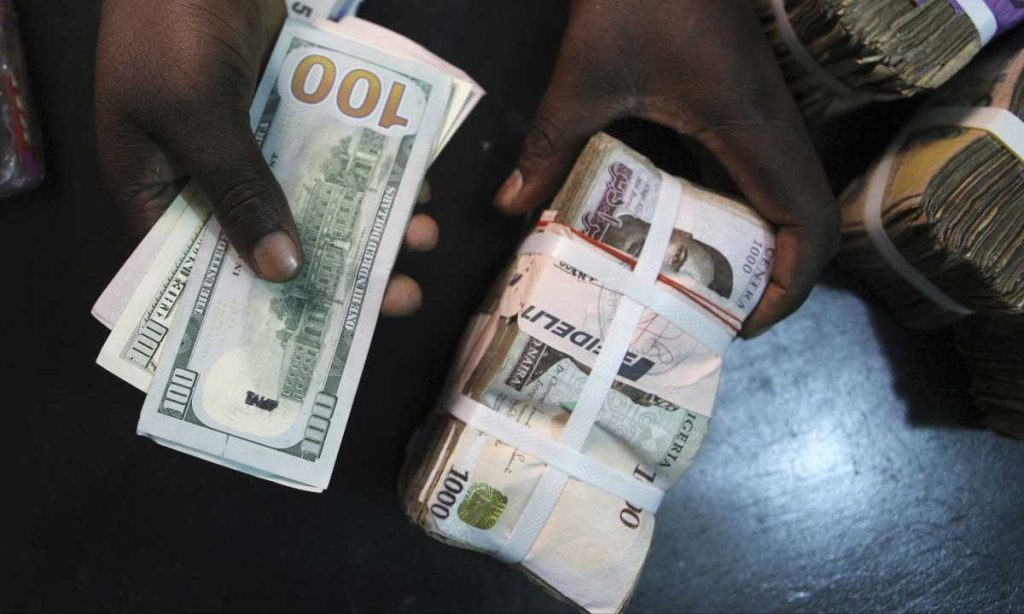The Nigerian currency, the naira, has experienced a significant decline against the US dollar at the foreign exchange market, a trend exacerbated by the recent fuel price hikes instituted by the Nigerian National Petroleum Company Limited (NNPCL). This latest adjustment marks another increase in the cost of Premium Motor Spirit (PMS), contributing to the ongoing volatility in Nigeria’s financial landscape. The naira closed at an alarming rate of N1625.13 per dollar on Wednesday, reflecting a depreciation of N63.37 from the previous day’s exchange rate of N1561.76. This continual drop highlights the challenges facing the Nigerian economy, particularly in its foreign exchange sector.
Interestingly, this depreciation comes on the heels of a brief recovery for the naira, which appreciated by N73.39 against the dollar just a day earlier. However, the optimism was short-lived, as the currency quickly reversed its gains, experiencing a similar decline in the black market where it plummeted to N1895 per dollar, down from N1780. This sudden downturn underscores the vulnerability of the naira in the face of external pressures, particularly those rooted in domestic policies affecting the energy sector.
Market dynamics further reflect the growing distress in the exchange market, as daily foreign exchange transactions fell sharply to $170.60 million on Wednesday from $253.68 million on Tuesday. This drop in turnover indicates reduced liquidity in the market, implying that fewer transactions are being conducted amidst this volatile environment. The decrease in turnover coincides with the mounting fear among investors and traders regarding the sustainability of the naira, especially in light of new fuel price adjustments that agitate inflationary pressures within the economy.
The recent announcement by NNPCL that it would raise petrol prices from N898 per litre to N1030 per litre marks the second hike in a single month, deepening concerns amongst stakeholders. The price increase is expected to heighten operational costs for businesses and households, consequently fueling inflation and driving further demand for foreign currency. Industry insiders have suggested that such consecutive price hikes inevitably place additional pressure on the naira’s exchange rate, leading to a compounded effect on the economic landscape.
Additionally, analysts in the financial sector have pointed out that the direct correlation between the rising fuel prices and the naira’s depreciation cannot be overlooked. As costs escalate, businesses are compelled to seek more foreign currency to manage expenses and imports, thus intensifying competition for limited dollars. The cascading effect of these changes not only impacts large enterprises but also has profound implications for smaller businesses and consumers who are already grappling with the increasing cost of living.
In summary, the ongoing depreciation of the naira against the dollar signifies a deeper issue rooted in the interplay between domestic fuel pricing and the overall health of Nigeria’s economy. With rising fuel costs leading to increased operational expenses and a subsequent impact on demand for foreign currency, the situation calls for immediate attention from policymakers and stakeholders. Without strategic interventions to stabilize the naira, the economic struggles may persist, pressing further upon businesses and consumers alike. As the country navigates these turbulent waters, the hope is that proactive measures can be taken to remedy the situation before the ramifications become unmanageable.


